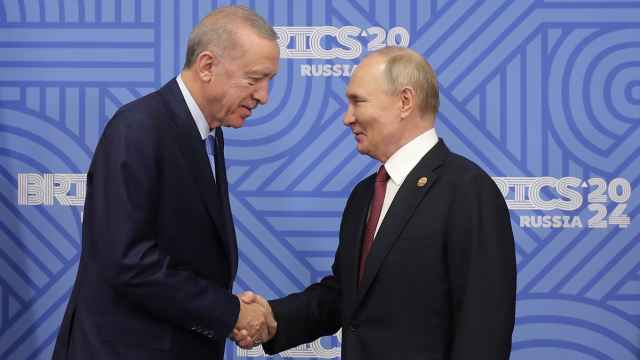Отрешение: dismissal, dethronement
Like everyone else in Moscow, when I heard about Mayor Yury Luzhkov’s dismissal, I wondered what it meant. Oh, not the politics of it. I put away my political crystal ball a long time ago. I was curious about the word used to describe the dismissal — отрешение (dismissal, dethronement, impeachment), which I associated with deposing kings and presidents. After all, the related verb отречься is to abdicate a throne.
It turns out that I wasn’t the only one who was puzzled by the word choice. One Russian linguist described the word as archaic and suggested that by using this term, “Президент хотел придать своим словам оттенок уважения” (The president wanted to give his words a tinge of respect).
This is just the sort of linguistic connotation I love, but, alas, the real explanation is more prosaic. President Dmitry Medvedev’s decree simply used the wording from the law regulating local authorities. Article 19 of the law covers conditions for досрочное прекращение полномочий высшего должностного лица (the early termination of powers of the highest-ranking official). Since Luzhkov hadn’t died, moved abroad permanently, been declared incompetent by a court or committed any of the other acts that would be cause for dismissal, only one of the 10 reasons for termination could be applied: “отрешение его от должности Президентом Российской Федерации в связи с утратой доверия” (dismissal from office by the president of the Russian Federation because of loss of confidence). The loss of confidence, as defined by the law, is за ненадлежащее исполнение своих обязанностей (for failing to carry out his obligations properly).
The verb pair отрешать/отрешить is used when someone powerful has been naughty. It is defined as: исключить, удалить за совершение тяжких преступлений (to expel or remove someone for committing serious crimes). Stay tuned to “As Moscow Turns.”
Meanwhile, this is a good time to look at how to quit or fire someone in Russian, which depends to some extent on the position. Big shots and peons use different verbs. Отставка (resignation) is used by military brass, as well as by high-ranking governmental and commercial leaders. The person who wants to resign can подать в отставку (to put in his resignation), выйти or уйти в отставку (resign). The head honcho may or may not принять отставку (accept the resignation), or he can instigate his subordinate’s exit: отправить в отставку (to fire someone).
Увольнять/уволить is used when a peon is relieved of his duties. You might hear уволить в отпуск (to send someone on leave or vacation), or уволить в отставку (to dismiss someone), but you are more likely to hear the simple “его уволили” (he was fired) to describe anyone who’s gotten a pink slip. It’s slangy and rather cheeky when used in regard to a bigwig. Отстранять/отстранить от должности (to relieve someone of his duties) is a neutral expression that can be applied to errant employees anywhere on the career ladder. If you’re the employee who is leaving, you can say увольняться/уволиться с работы (to quit).
Historically, we find that Николай II отрёкся от престола (Nicholas II abdicated the throne); Хрущёва освободили от должностей (Khrushchev was relieved of his posts); Горбачёв сложил с себя полномочия президента (Gorbachev resigned the post of president); and Лужков был отрешён от должности (Luzhkov was deposed). So I guess we’ve come almost full circle.
The king is dead! Long live the king!
Michele A. Berdy is a Moscow-based translator and interpreter. A collection of her columns, “The Russian Word’s Worth,” has been published by Glas.
A Message from The Moscow Times:
Dear readers,
We are facing unprecedented challenges. Russia's Prosecutor General's Office has designated The Moscow Times as an "undesirable" organization, criminalizing our work and putting our staff at risk of prosecution. This follows our earlier unjust labeling as a "foreign agent."
These actions are direct attempts to silence independent journalism in Russia. The authorities claim our work "discredits the decisions of the Russian leadership." We see things differently: we strive to provide accurate, unbiased reporting on Russia.
We, the journalists of The Moscow Times, refuse to be silenced. But to continue our work, we need your help.
Your support, no matter how small, makes a world of difference. If you can, please support us monthly starting from just $2. It's quick to set up, and every contribution makes a significant impact.
By supporting The Moscow Times, you're defending open, independent journalism in the face of repression. Thank you for standing with us.
Remind me later.







